- Home
- Succulents
- Ceraria
- Ceraria pygmaea
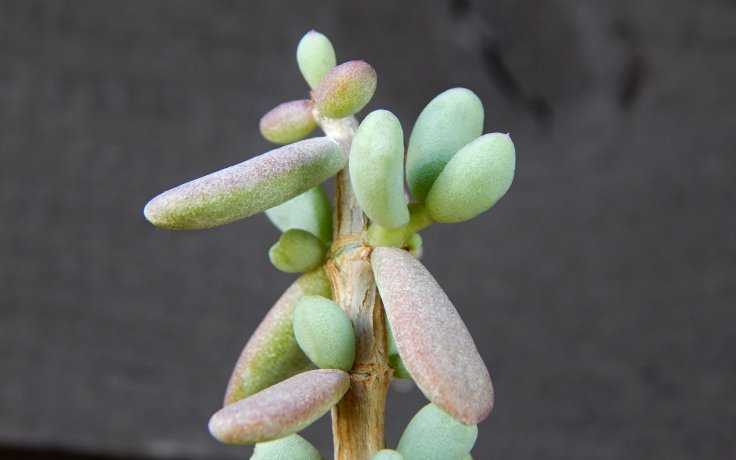
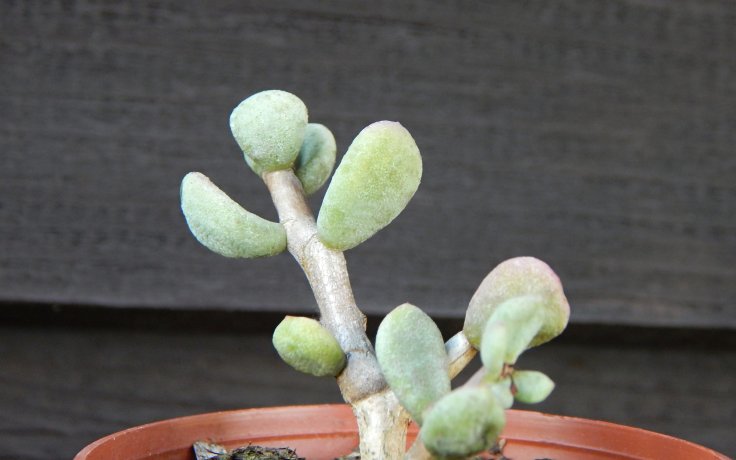
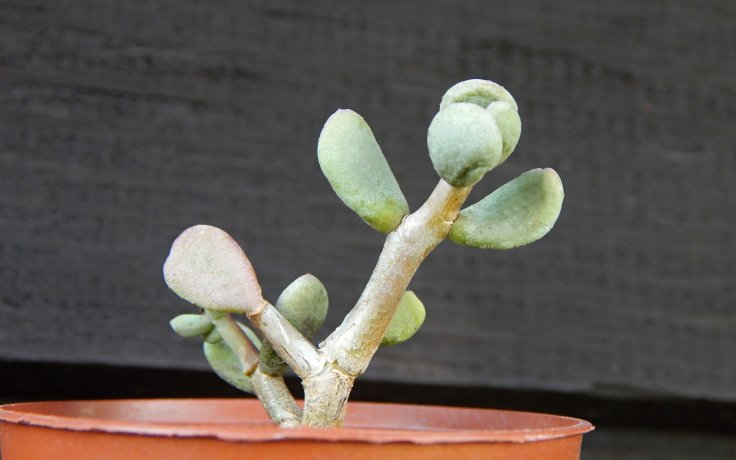
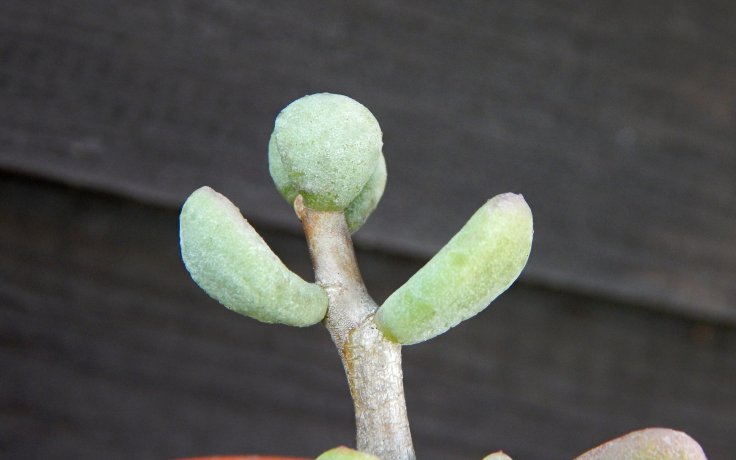
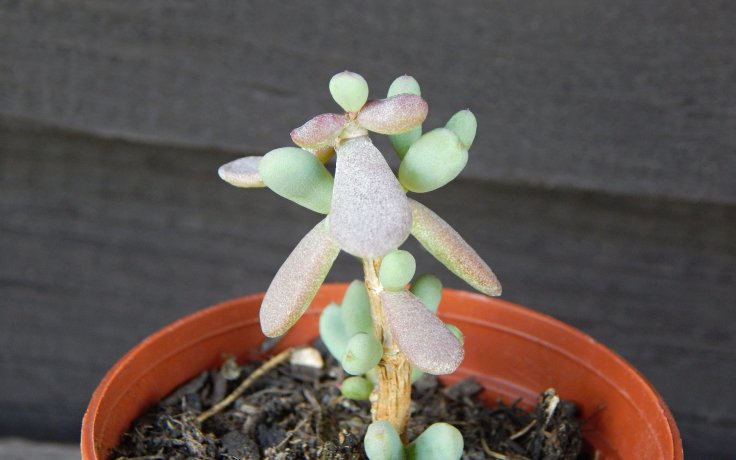
Ceraria pygmaea
The plant likes a sunny habitat but also prefers partial shade.
Always water a few days after the substrate has dried out. In winter, limit watering.
It can tolerate -3.9 °C in the short term. However, the plant is not hardy.
This plant has learned to fight against long periods of drought. While it retains moisture in its roots, it lets its leaves fall off. When it has enough water, the leaves will grow back.
Ceraria pygmaea, formerly known as Portulacaria pygmaea, is an unusual succulent plant that has won the enthusiasm of growers for its compact growth and cute appearance. This small plant, nicknamed Pygmy Porkbush, is a popular specimen for potting and bonsai shaping.
Ceraria pygmaea is characterised by thick, fleshy and glabrous leaves that are initially blue-green but later turn yellow-green. They peel off easily when touched, so the plant must be handled with care. The plant responds to prolonged periods of drought by partially or completely dropping its leaves to protect itself from moisture loss. It is important to note that this plant is 'moody' and drops its leaves without warning and without any apparent cause, which can take even experienced growers by surprise. Ceraria has rapidly woody stems with a tuberous base and small branches. The tuber can grow up to 10 cm in diameter and is covered with a peeling bark. Thanks to this robust rootstock, it can survive extended periods of drought.
The plant produces small white to pale pink flowers.
The growth of Ceraria pygmaea is slow and reaches a height of only a few centimetres over a long period of time. This makes it ideal for growing in small pots or for creating bonsai miniatures. It can be grafted onto Portulacaria afra to make it grow faster. Shipped rooted Ceraria pygmaea plants are usually small and grow later so don't be put off by their size. With a little patience and care this charming plant will bring you much pleasure.